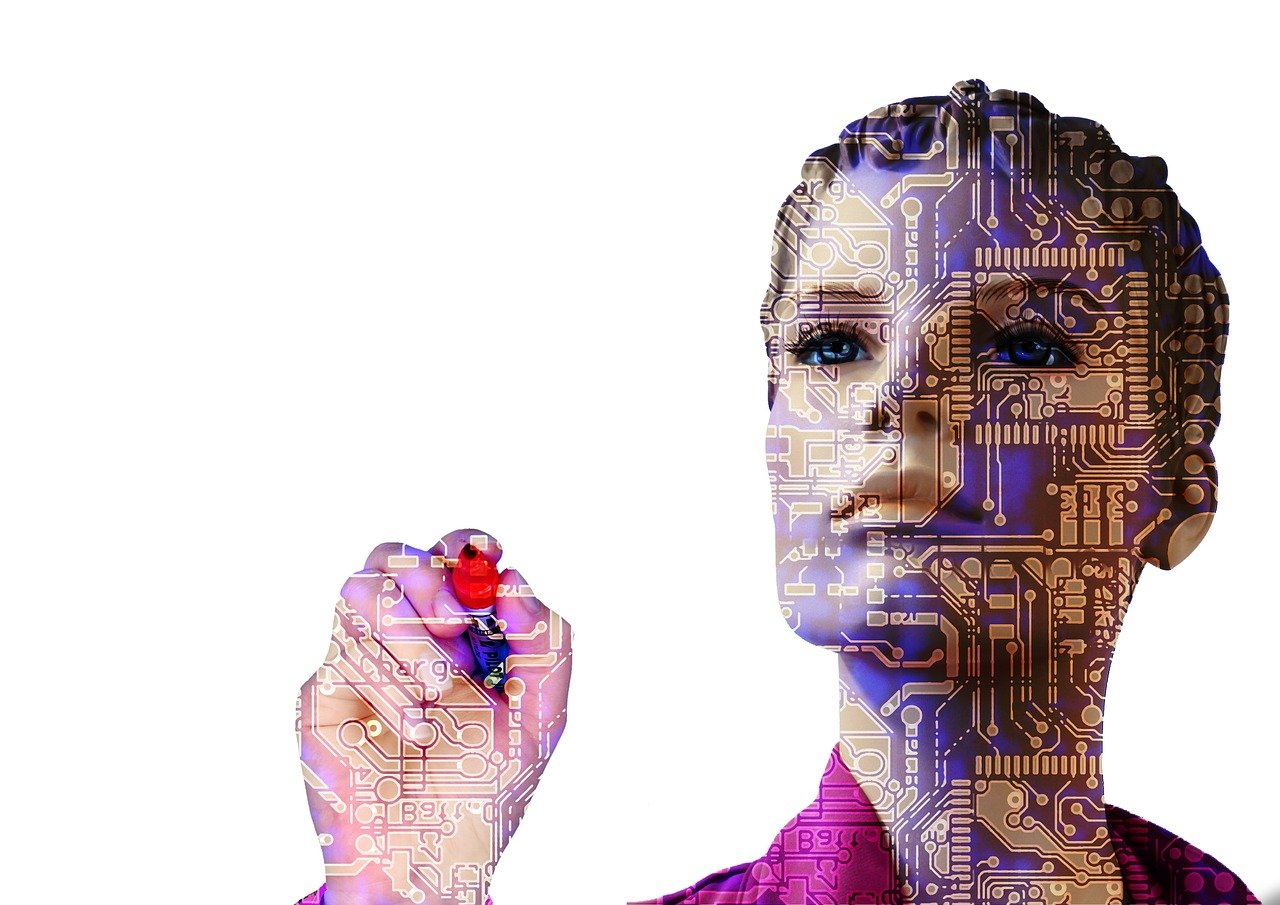Artificial Intelligence: What Are the Cons?

July 27, 2023
Artificial Intelligence (AI), of which chatgpt is the most famous, has emerged as a transformative technology with the potential to revolutionize various industries and significantly impact society. Its ability to automate tasks, analyze vast amounts of data, and make predictions has undoubtedly brought numerous benefits, such as increased efficiency and improved decision-making. However, like any disruptive technology, AI also comes with its fair share of challenges and drawbacks. In this article, we will delve into some of the significant cons of artificial intelligence. We shall also explore their implications in greater detail.
Mastering AI: A Beginner’s Guide to Understanding and Utilizing Artificial Intelligence
Job Displacement and Automation
The growing integration of AI and automation has led to legitimate concerns about the potential displacement of human workers. As AI-powered machines and algorithms become increasingly capable, they can perform tasks more efficiently and accurately than their human counterparts. These efficiency gains often result in reduced labor requirements and, in some cases, complete elimination of certain job roles.
Industries heavily reliant on repetitive and standardized tasks are particularly susceptible to automation-driven job displacement. For example, advanced robotic systems can now perform intricate assembly line tasks with remarkable precision and speed. This leads to decreased dependence on human factory workers.
Furthermore, the rise of AI-powered chatbots and virtual assistants has revolutionized customer support services. These intelligent systems can handle basic customer inquiries, troubleshoot problems, and process routine transactions, reducing the need for human agents.
While proponents of AI argue that automation can enhance productivity, streamline operations, and reduce operational costs, the human cost of job displacement should not be underestimated. Millions of workers worldwide are at risk of losing their livelihoods due to automation, leading to significant economic and social implications.
Bias and Fairness Issues
As artificial intelligence continues to permeate various aspects of our lives, the concern over bias and fairness in AI systems has become increasingly prominent. AI algorithms are trained on vast datasets, and historical data influence their decisions. However, these datasets may contain inherent biases present in society, leading to biased outcomes and perpetuating existing inequalities.
Impact on Marginalized Groups
AI systems have been found to exhibit bias against marginalized groups. These include racial and ethnic minorities, women, the LGBTQ+ community, and people with disabilities. Biased AI can affect crucial areas. Examples are hiring, lending, and law enforcement, leading to discriminatory outcomes that exacerbate social disparities.
Data Bias Amplification
AI algorithms learn patterns from historical data, which might reflect societal prejudices. For example, if historical data shows underrepresentation of certain demographics in specific professions due to past discrimination. in these cases, AI systems may learn to perpetuate those patterns and inadvertently exclude qualified individuals from opportunities.
Black Box Problem
Many AI algorithms, particularly deep learning models, operate as “black boxes” – their decision-making processes are complex and not easily interpretable. This lack of transparency makes it challenging to identify and rectify biases that might exist within the system.
Fairness Trade-Offs
Achieving fairness in AI is a challenging task, and sometimes, efforts to address one type of bias may inadvertently introduce another. Striking the right balance between fairness and accuracy in AI decisions is a complex and ongoing challenge for researchers and developers.
Data Imbalance
Imbalanced datasets, where one group is significantly underrepresented, can lead to skewed results and reinforce existing biases. For example, if a facial recognition system is trained primarily on data from a specific demographic, it may struggle to accurately recognize faces from other racial or ethnic groups.
How does artificial intelligence help us?
Security and Privacy Concerns
The increasing integration of artificial intelligence into various systems and applications has raised significant concerns about security and privacy. As AI-driven technologies become more pervasive, they interact with sensitive data and critical infrastructure, making them potential targets for malicious actors seeking to exploit vulnerabilities.
Data Breaches and Privacy Violations
AI systems rely heavily on vast amounts of data to operate effectively. This data often includes sensitive personal information, financial records, and proprietary business data. If AI systems are not adequately secured, they become attractive targets for hackers aiming to steal valuable data, leading to potential privacy violations and significant financial losses.
Vulnerabilities in AI Algorithms
Like any software, AI algorithms can have vulnerabilities that hackers may exploit to gain unauthorized access or manipulate the system’s outputs. Attacks like adversarial attacks can deceive AI models, causing them to make incorrect decisions.
Misuse of AI in Cyber Attacks
AI’s sophisticated capabilities can be harnessed for cyber attacks, enabling attackers to launch more targeted and devastating assaults. For example, AI-driven malware can adapt and evolve to bypass traditional cybersecurity defenses, making it challenging to detect and mitigate such threats.
Manipulation of AI Systems
Malicious actors might attempt to manipulate AI systems to their advantage. This can involve feeding biased or false data to AI models to influence their decision-making processes, leading to biased outputs or misinformation.
Lack of AI Regulation and Standards
The rapid advancement of AI has outpaced the establishment of comprehensive regulations and standards for its security. This regulatory lag leaves AI systems vulnerable to potential threats as developers and organizations navigate uncharted territories without clear guidelines.
Lack of Creativity and Empathy
Artificial Intelligence has made tremendous progress in simulating human intelligence and performing tasks based on patterns and data. However, it lacks the essential human qualities of creativity and empathy, which are inherent in human cognition and emotional understanding. These limitations have significant implications for certain applications of AI and its interaction with humans.
Creativity
While AI can excel at generating content based on existing patterns and data, it cannot truly create or innovate in the way humans can. Creative endeavors, such as painting a masterpiece, composing a symphony, or crafting an original story, require imagination, intuition, and an understanding of emotions that go beyond data-driven processing.
Human creativity is deeply rooted in our ability to make connections between seemingly unrelated concepts, draw inspiration from emotions, and think outside the confines of predefined rules. AI, on the other hand, operates on predetermined algorithms and lacks the capacity to generate ideas beyond what it has been trained on.
Empathy
Empathy is the ability to understand and share the feelings of others, allowing for compassionate responses to human emotions and needs. While AI can analyze emotions and respond contextually, it lacks genuine emotional understanding. AI-driven chatbots may simulate empathy by recognizing keywords and phrases, but their responses are based on data patterns rather than genuine emotional comprehension.
Empathy is crucial in various fields, such as healthcare, counseling, and customer support. Human professionals can offer emotional support, connect with patients, and adapt their responses based on individual emotional states. In contrast, AI may lack the sensitivity and emotional depth required for such interactions.
Ethical Considerations
The lack of empathy in AI also poses ethical challenges. In fields like autonomous vehicles and healthcare, decisions may need to be made that involve ethical dilemmas and human lives. AI, being data-driven and lacking emotional understanding, may not be well-equipped to navigate complex ethical decisions where emotions and empathy play a significant role.
Human-AI Interaction
The absence of creativity and empathy can affect human-AI interactions. In some cases, users may be frustrated by AI systems that cannot understand nuanced requests or empathize with their emotional states. It is crucial for designers of AI applications to set appropriate expectations and boundaries for AI’s capabilities to ensure a positive user experience.
Overreliance on AI and Human Autonomy
As artificial intelligence becomes more sophisticated and prevalent, there is a growing concern about the potential overreliance on AI and the impact it may have on human autonomy. While AI has the capability to augment human decision-making and enhance efficiency, blindly entrusting critical decisions to AI systems without human oversight can lead to unintended consequences and a loss of control.
Blind Trust in AI Recommendations
The increasing accuracy and efficiency of AI algorithms can lead to blind trust in their recommendations. In various domains, such as finance, healthcare, and autonomous vehicles, individuals may defer their judgment entirely to AI systems, assuming they will always make the best decisions. However, AI systems can still make mistakes, especially in complex and uncertain situations.
Lack of Human Judgment
AI operates based on historical data and patterns, often without taking into account the broader context or ethical considerations. In domains where human judgment, empathy, and ethical decision-making are critical, relying solely on AI can lead to suboptimal outcomes.
Responsibility and Accountability
Overreliance on AI raises questions of responsibility and accountability. If AI-driven decisions lead to negative consequences, determining who is accountable can become challenging. Humans could want to shift blame to the AI system.
Loss of Skills and Autonomy
Excessive reliance on AI can lead to a decline in human skills and decision-making abilities. If individuals become overly dependent on AI, they may lose the ability to handle tasks independently. The result will be a reducing human autonomy and self-reliance.
Vulnerability to Attacks and Errors
Overreliance on AI can make systems vulnerable to attacks or errors. Malicious actors might exploit weaknesses in AI systems to manipulate outcomes. Technical glitches or biases in the AI’s training data can result in unexpected and undesirable results.
High Costs and Inequality
The development and implementation of AI technologies can be expensive, making them accessible primarily to larger corporations and wealthy institutions. This can exacerbate the existing socioeconomic divide and create a technology-driven inequality gap. Smaller businesses may struggle to compete with larger ones that can afford to harness AI’s capabilities. The result may potentially lead to economic disparity.
Addressing this issue requires efforts to democratize AI technologies and promote fair access to AI resources. Governments and policymakers can play a crucial role in this. They can provide incentives and funding for AI research and development in smaller businesses and startups. Additionally, collaborations between large organizations and smaller enterprises can facilitate the diffusion of AI knowledge and resources, fostering a more equitable technological landscape.
My AI: Discover the Artificial Intelligence on Snapchat
Toward the future, with attention
As AI continues to advance, it is essential to acknowledge and address the cons associated with its implementation. Collaborative efforts from researchers, policymakers, and industry leaders can overcome the challenges of job displacement, bias, security, empathy, human autonomy, and inequality.
By approaching AI development responsibly and ethically, we can build a future where artificial intelligence augments human capabilities without compromising fundamental values. Striking the right balance between AI integration and human oversight will be crucial in maximizing its benefits while minimizing its adverse effects. Through careful consideration and responsible deployment, we can ensure that AI becomes a force for positive transformation and inclusive progress in society.








